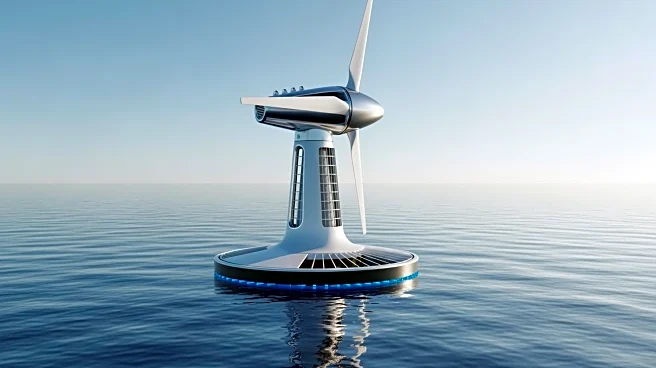What's Happening?
The marine energy sector is projected to contribute 300GW of renewable capacity by 2050, with a potential value exceeding $340 billion. The Energy Industries Council (EIC) highlights the UK as a leader in wave and tidal stream projects, with 28 projects in the pipeline.
The sector is seen as crucial for achieving net zero goals, with tidal energy being more established than wave energy. The UK aims to achieve 1GW of tidal energy and 300MW of wave power by 2035. The report emphasizes the need for governments to recognize marine energy as a viable renewable source rather than a scientific experiment.
Why It's Important?
Marine energy represents a significant opportunity for renewable energy expansion, contributing to global efforts to reduce carbon emissions and achieve net zero targets. The development of marine energy projects can enhance energy security, create jobs, and stimulate economic growth in coastal communities. The sector's growth could lead to technological innovations and cost reductions similar to those seen in solar and wind energy, making marine energy a competitive and sustainable option for future energy needs.
What's Next?
The marine energy sector faces challenges such as regulatory hurdles and the need for infrastructure upgrades. Governments and industry stakeholders must collaborate to address these issues and support the sector's development. Strategic planning and investment in technology innovation, supply chain capabilities, and workforce skills are essential for realizing the full potential of marine energy. The sector's growth will require coordinated efforts to overcome existing barriers and ensure responsible deployment of marine energy projects.
Beyond the Headlines
The expansion of marine energy has broader implications for environmental conservation and community resilience. By reducing reliance on fossil fuels, marine energy can contribute to cleaner air and water, benefiting ecosystems and human health. The sector also offers opportunities for local communities to access affordable and sustainable energy, fostering economic development and social equity. The ethical considerations of marine energy development include balancing environmental protection with technological advancement and ensuring equitable access to renewable resources.














